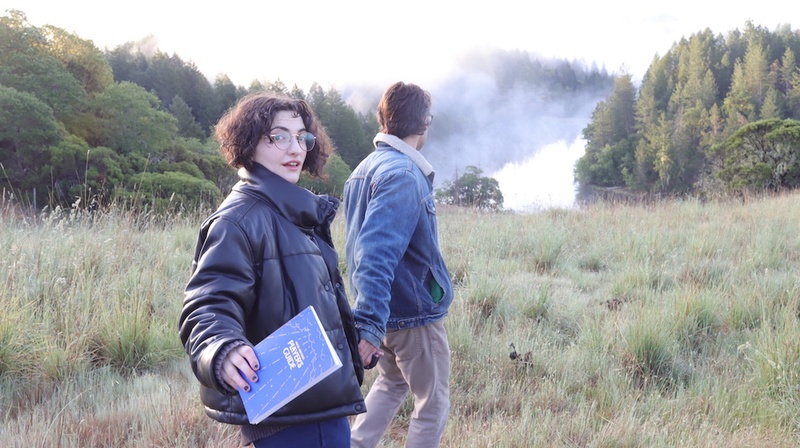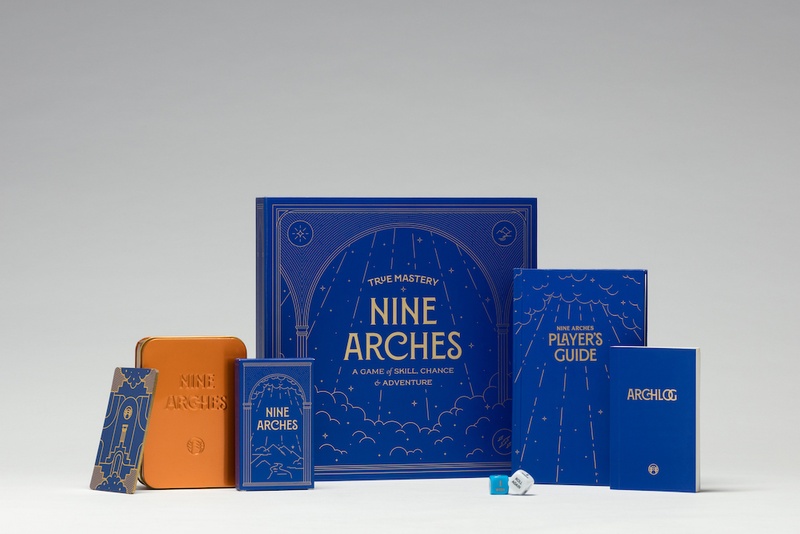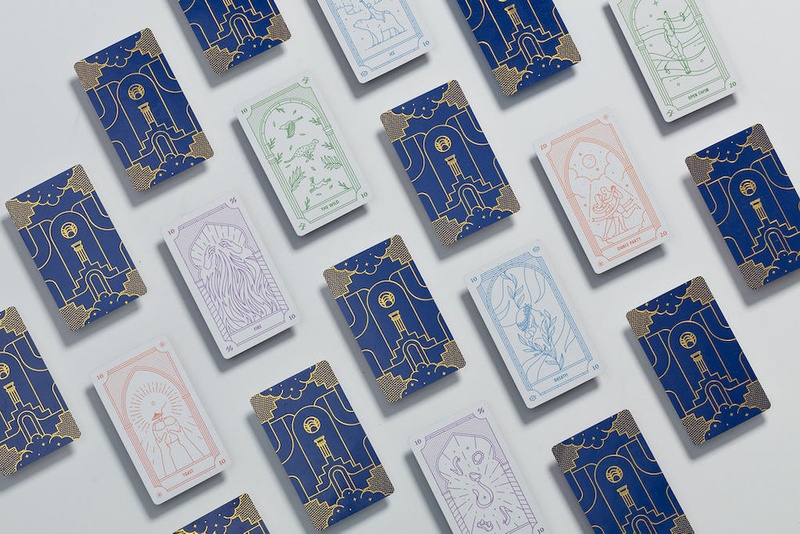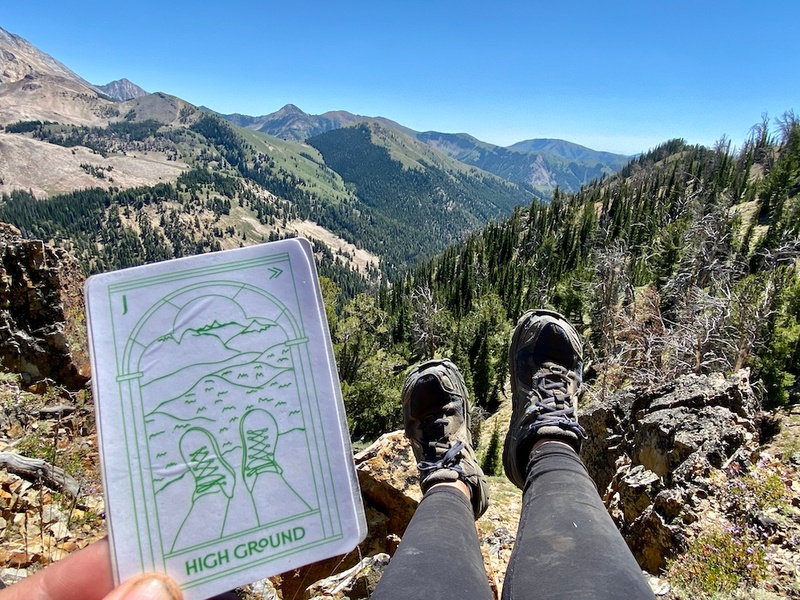You’re a journalist by trade. How would you describe your approach?
Pretty much my whole professional career has been in journalism—a lot of investigative reporting, narrative nonfiction, high-detail, close-call adventure reporting. There’s writing involved and there’s editors and books and all that, but to me it’s really just being curious. That, to me, makes for a good journalist. But I think that curiosity also extends beyond journalism. What I’ve tried to do is mix curiosity with a little bit of activism, because we can be curious and we can tell stories, but if your curiosity isn’t creating an impact, it’s a missed opportunity.
Does curiosity sum up why you were drawn to journalism to begin with? Or is there more to it than that?
I started my career at the New York Times covering boxing. I loved that world because, to me, the fight game is like a relic of ancient Roman times in a way. My curiosity about it led me into these niches, and then into crime, and then into food and all these different places. But the true curiosity for me has always been about behavior—why people act the way they do. And really, that kind of psychological stuff crosses with journalism and storytelling when you get into character development. And there’s no greater forum to explore character development and triggering action than the world of games. To me, gamification is the ultimate playground and promised land for someone who loves to be challenged by storytelling.
What do you mean by that?
Well, I could write you a nice story, you know? I could make a nice documentary for you. That’s entertainment, for the most part. It’s two-way. It’s not alive. The game is alive. The big difference with the game and the story or the game and journalism… in journalism, you’re creating something for you to react to. In a game like Nine Arches, we’re building a world where you can truly be the hero of your own tale. And I think that that’s really something special, because the truth is we’re all the heroes of our own tales. We’re all living our own dramas. We’re all living in our own worlds.
So I thought, instead of just writing five more years of magazine copy or five more years of books, why not create a tool that people can use that actually allows them to live a more full, meaningful, active, fulfilling life? Why not create a game where instead of shooting someone in the face and getting points for that, you could go on a hike and get some air, because you always said you want to go on a hike and never do? Or go take a walk out under the stars because you used to do that but you don’t do that anymore? Or make that chocolate soufflé that you once thought of? So I got really curious about the mechanisms, the loops, and the human design behind the game. And that’s really where the obsession behind Nine Arches began.
You’ve described Nine Arches as “tarot meets Choose Your Own Adventure,” which is a fascinating combination. How did you land on that?
We tested a lot of concepts. One of the things that really felt right was to create a game that everyone could really call their own. When you play Monopoly, it’s Parker Brothers, and you’re playing by their rules. You’re confined by the board. You’re confined by the rule set. And while that can create some drama and some Hee Haw moments or family competition, I feel it’s about time for games to move beyond the console and beyond the board for a variety of reasons. One of them is screen time—overdosing on screen time is bad for you. We’re not supposed to spend 13-plus hours a day on the screen, which is the case now.
We spend more time online, on the screen, than we don’t. And in a way, I don’t think it’s our fault. It’s important to not feel bad about that. I spend way too much time on screen. I think dopamine overload is probably my main affliction at this point. So we have all these different devices, and we’re not participating in the actual things that truly make us happy, that scientifically make us happy—the meaningful connections. The more meaningful connections you have in life, the higher your level of vitality goes. The higher your level of vitality goes, the happier you are. I think that there’s a correlation between higher screen time and lower happiness. So, how to make a game that can make you happy, that can make you feel alive?
How did you arrive at a card-based game?
While board games are great, sitting around a dining room table for three hours and waiting for your turn is not that interesting anymore to a lot of people. Culture has moved so much toward optimization and productivity—time is valuable. We want more for our time than playing drinking games, I think, and making silly jokes about other people. And I’m not saying humor is not important—or sarcasm, and all that. There’s a place for it, but time is our treasure. So how do we create a game that makes you feel like you’re earning more treasure in your life, every round you play?
First of all, you don’t want to build an app. You want to build something that doesn’t require batteries, and something very familiar to people—like a deck of cards. And what’s so great about the card genre and cartomancy is that there’s really an element of fate intertwined between the magic of a card deck. You never know what card will pop up. So the idea came when I was playing a game of rummy with my wife during the pandemic. We were stuck at home and we didn’t have anything to do, like everyone else. But playing a game of rummy was boring. Like, what are we doing? Why don’t we just imagine? What if each card that came out was the soufflé card? Or the gardening card? Like all these things you want to do, but there’s never enough time, so you don’t do it. So each card is like a push to inspire you to take action on a desire.
We kind of messed around with these challenge cards and then put some designs on them and then we designed a system of power suits—delight, escape, flow, and chaos—in the deck. And each of the suits represent core virtues that all add up to a full vitality. So you play a card a day or a card a week, or you combine cards, and you’re going to have a good time. You’ve going to have a meaningful moment. It will take you places. It’s a game where the world becomes your board, and each day becomes an opportunity to explore different things.
Give me an example.
Okay, well, I only have an hour to finish my latest challenge. I need to get a funky hat and do a dance and share my photo with my team. Dancing makes you happy, so all of a sudden you get this boost. I have a five-month-old daughter, and I made her this weird flower wreath that came out terrible—and I had to do it in 10 minutes. I never would have done that if not for the game. I found when I was making this horrible flower wreath that all of a sudden my hands, like my ability to use my hands, the nimbleness of my hands in a way—it changed. And it was a weird self-reflecting moment, like I’ve really been on a keyboard and typewriter for too long. It’s almost like I couldn’t tie a knot. So that’s a small example, but you get to feel a little bit more alive.
So it’s meant as an antidote to the digital world?
In a way. I believe one problem in our digital world and the massive dopamine overload and the constant reliance on gadgets that we are forced to engage with is that so many of the moments that are destined in our lives do not happen because of the stupid notifications that pop up and the buttons and the noises. We’re constantly harassed and distracted by these tools. And they take away, I think, our destiny. All these different myriads of options—this hyper-optionized world is driving us nuts. We constantly think there’s something better. I think we all suffer from decision fatigue by the time we’ve had our second cup of coffee. That’s just my take.
We have something called the 80-20 rule of adventure and routine. And we need routine. It keeps us organized—everyone has got to pay their bills. But if you just become a routine, then your life is going to be stale. And when it becomes stale, then you’re not going to really feel all that great. You’re just going through the motions. But the point is to feel, as Joseph Campbell said, “The rapture of being alive.”
The idea behind the game is to inspire and challenge you to break the routines, to permit yourself to power down and be the fullest expression of who you are. The deck is designed to challenge you to do things that may make you uncomfortable. If you don’t like to dance, then watch out for the dance party card. If you don’t like to sing, heads up for the canary card. But when we break our fears, there’s something magical that happens. Mike Tyson told me this once: “The only way to break fear is action. Action is the only way that relieves the tension.” So you have to take action, and that’s what the game is designed to do.
Okay, so the idea is to not only do stuff that you’ve been meaning to do, but also stuff that you might otherwise be disinclined to do. Because I think a lot of people, if they feel like going for a walk under the stars or making a soufflé—to use your examples—they’re just going to do it. They don’t need a game to suggest it.
Totally. There are a lot of people out there who will make the soufflé on their own, but how would they play the caravan card? Maybe they’re not great at road trips. What about the rooster card? Maybe they don’t like to get up early in the morning. Or how would they play the caravan and the rooster combined? Because in the game, you don’t play one card at a time. You combine them. You create different deals. I can do one for you right now if you want.
By all means.
Okay, I’ll grab a deck. You’re in LA, it’s a Monday, the work week has just started and I just want you to think about what it is that you want for this week. Don’t tell me. But when you have it mind, tell me a number.
Three.
Okay. And what’s your birthdate—month and day?
September 13th.
Okay, so your first card is the wild. The wild is out of the escape suit, and this card is all about coming into direct contact with nature. It’s a return to the wild roots, the primal roots. Your second card is caravan. That’s also from the escape suit. This is a card all about breaking through and heading off into a different direction. It’s a freedom card. And your third card is the heaviest card in the deck, believe it or not. It’s the Cave of Fears, and this is out of the chaos suit. This is sort of like the bogeyman in Nine Arches. Back to Joseph Campbell for this one. He said, “And the cave you fear holds the treasure you seek.”
Okay, so now I have my three cards. What’s next?
Each card represents an action to take. A lot of people like to play one at a time, but you can combine them in unique ways to create unique experiences. And there’s a time limit. There’s a dice that has your time and you’re supposed to go out and do something. If you complete your quest, then you advance—you move through the arches, or levels. If not, you stay put. But the point is that these cards are yours to interpret and to motivate and inspire you. And the game comes with a book that offers interpretations for each card if you want.
Tell me a little bit about the Cave Of Fears card.
I know of players that have interpreted this in different ways. One person spent the night by herself in a national forest in Utah. Another player called her sister who she hadn’t spoken to in 20 years. That was her cave of fears—reaching out to her sister. And by sharing these experiences, you also create ties to the community as well, which is another part of it.
Your Nine Arches co-creator is Grant Shonkwiler, who worked on videogames like Fortnite and Doom. Tell me a little bit about what you got out of the collaborative process with this game, because I know that writing tends to be a solitary experience.
Writing is a lonely game, that’s for sure. As a creator or creative person, my collaboration with Grant and many others in the game world is awesome. In a way, I think that games do what a lot of media people want but just don’t have the forum to do. First of all, games inspire people. Games tell stories. Games create amazing communities. Games make money. All the things that the media person wants and craves, the game industry has already done and continues to do. And games are built on a human presence. The player is the hero of the story—not the game.
Everyone needs to be the hero of their own story. I think that’s how games work, just by their nature. Media counts engagements and how many people are paying attention. Let’s say you have a website or a media newsletter—the KPIs are all about whether people are paying attention because they’re selling ads. But to me that’s not good enough. Who cares if you’re getting people to pay attention if you’re not inspiring anyone to move through the experience you’re creating from?
With media, it’s hard because you’re almost begging people to come to you and pay attention as opposed to really rewarding your audience. But that’s what a game does. You’re getting rewarded. It could be Fortnite or it could be Nine Arches—or whatever—but you get the reward.
Nine Arches has the same elements of action and adventure that can be found in your writing. What do you think draws you to that?
I feel wholly, exclusively devoted to trying to inspire people—to push, pull, prod, dare and reward others into tasting the joy that comes when you conquer a fear or expand a comfort zone. That’s what motivates me, because I know how fears can be, how hard it is to overcome them. And now it’s harder than ever to just get out and do real stuff again. Maybe the only way to get off the grid, the only real way to escape, is to find these pockets of time to do what we want. It’s like all the escape we have left, you know?
This content originally appeared on The Creative Independent and was authored by J. Bennett.
J. Bennett | Radio Free (2021-11-12T08:00:00+00:00) Journalist and game creator Geoffrey Gray on finding the time to do what you want to do. Retrieved from https://www.radiofree.org/2021/11/12/journalist-and-game-creator-geoffrey-gray-on-finding-the-time-to-do-what-you-want-to-do/
Please log in to upload a file.
There are no updates yet.
Click the Upload button above to add an update.



